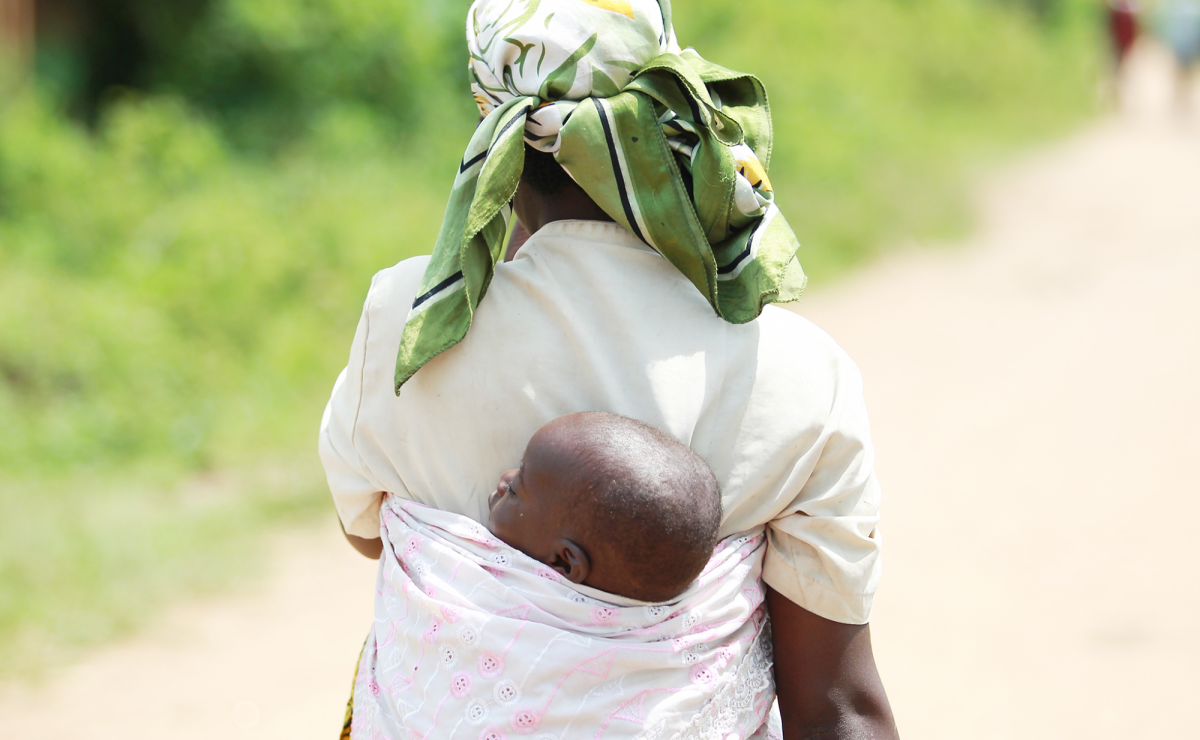Forced in to prostitution by war

Rwamwanja refugee settlement - In 2008, Marie Lapel (not her real name) was forced in to marriage at an early age of 12. This was after she was abducted from her parents’ home in North Kivu during the civil war in in the Democratic Republic of Congo (DRC). This was not a normal dream marriage as her husband was a rebel, who would rape and mistreat her despite being a child.
At 13 years, Lapel became a child mother and became pregnant for her second child a year after delivering her first baby. The young mother remained in an abusive marriage until she managed to escape from her marital home to her sister’s in 2011. Unfortunately, her military husband was not willing to let her go, together with his fellow rebels, they managed to track her down in a period of only three months.
As soon as her husband found her, he started threatening to not only take her children from her but to also kill her. To save their lives, the whole family fled their home and sought refuge in Rwamwanja refugee settlement located in Uganda’s Western region.
In Rwamwanja, the two sisters were united with their mother who had settled in the settlement after fleeing the unending conflicts and insecurities in DRC. Life in the settlement was not easy as the Lapel could hardly fend for herself and children. She could hardly afford their basic needs and the family had to depend on the inadequate aid from humanitarian organizations. Her life was characterized by lacking and suffering which forced her in to depression.
Lapel hated her children and decided to desert them, she left them with her aunt and embarked on a journey to Kampala, Uganda’s capital in search for a job, a new and better life. Unfortunately, things didn’t go as planned as she failed to find a decent job even after arriving in Kampala. Lapel resorted to joining a group of fellow Congolese refugees who engaged in sex trade. “I was looking for survival, I had to survive in Kampala so that I couldn’t go back to the settlement and face the nightmare of looking at the children I conceived out of rape and hated so much.” Says a teary Lapel.
She continues, narrating her ordeal working as a prostitute “Being a prostitute is one of my worst experiences that I don’t even want to recall. Men considered us objects that they would use for whatever they wanted, they would not only exploit us sexually, but also batter us and would usually leave without paying for the services.”
But because she had no options, Lapel soldiered on and remained in the sex business collecting just enough to eat for a day.
Through rumors, Lapel’s aunt got to learn about the life her niece was living in the city. The news was a blow in her face as it left her sad and broken, she decided to find means of locating her niece and bringing her back to the refugee settlement which seemed safer.
With support from the Lutheran World Federation (LWF), Lapel travelled back to Rwamwanja refugee settlement and was enrolled for psychosocial support. “First, LWF staff referred her for medical checkups and assistance at Rwamwanja Health Center III then enrolled her for counselling to regain her emotional stability.” Explains Cecilia Kapistolo, Lapel’s aunt.
A month down the road, Lapel was on the road to recovery, she looked healthy, strong and confident. She had also created a warm relationship with her children. Fortunately, she was also selected as one of the Gender Based Violence (GBV) survivors to benefit from Livelihoods support from LWF with funds from Church of Sweden (CoS). The support was aimed at facilitating her to engage in a decent and sustainable income generating activity.
Lapel was trained in business skills, financial management and also offered financial support that she invested in food produce. “I bought 5 bags of silver fish for resale, each bag weighed 20 kilograms.” From the sales, Lapel earned a profit of UGX 1,000,000 in a period of 4 weeks.
With her earnings, Lapel’s standards of living have greatly improved as she can now afford her and her children’s basic needs. “I earn enough to supplement our food ratio, buy clothes for the children and also take them to good private schools.”
With funds from Church of Sweden, LWF implements humanitarian activities aimed at upholding the rights, improving Protection, Safety as well as preventing and mitigating effects of SGBV for persons of concern in Rwamwanja refugee settlement.

